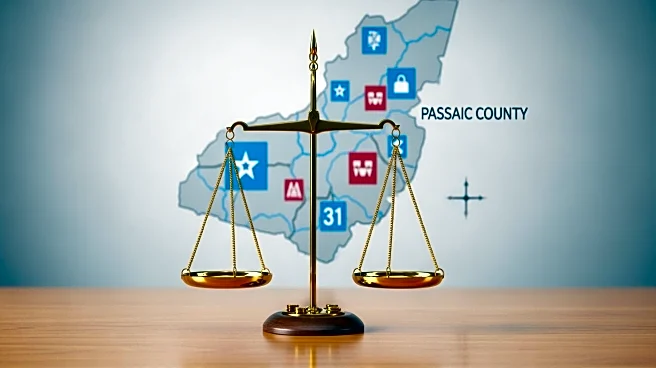What's Happening?
A conflict has emerged between the U.S. Department of Justice and the New Jersey Attorney General's office regarding the presence of federal election monitors in Passaic County. Assistant Attorney General Angela
Cai has challenged the Justice Department's decision to monitor polling sites following allegations by the New Jersey GOP that the county's Board of Elections rejected enhanced security measures for ballot protection. Cai emphasized that federal monitors require authorization from a federal judge to observe election proceedings, as per the Voting Rights Act. She stated that there is no current certification process for such monitoring in New Jersey's upcoming General Election. The Attorney General's office has informed counties that they are not required to allow Justice Department access without a court order or agreement. Cai noted that state law does not explicitly grant federal monitors entry to polling sites, although they can be present outside the protective zone surrounding polling locations.
Why It's Important?
This dispute highlights the ongoing tensions between state and federal authorities over election oversight and the integrity of the voting process. The involvement of federal monitors is a contentious issue, particularly in areas with a history of voting irregularities, such as Passaic County. The GOP's request for federal oversight underscores concerns about ballot integrity and the effectiveness of state-level enforcement. The outcome of this conflict could have significant implications for how elections are monitored and managed, potentially affecting voter confidence and the perceived legitimacy of election results. The situation also raises questions about the balance of power between state and federal authorities in safeguarding electoral processes.
What's Next?
The next steps may involve legal challenges or negotiations between the Justice Department and New Jersey officials to clarify the role and authority of federal monitors in the upcoming election. Political leaders and civil rights groups may weigh in on the issue, advocating for or against increased federal oversight. The resolution of this conflict could set a precedent for future elections, influencing how similar disputes are handled in other jurisdictions. Stakeholders will likely monitor the situation closely, as any developments could impact voter turnout and the overall conduct of the election.










